
Shu CHEN, chief engineer at the Urban Transportation Research Institute/Intelligent Research Institute of the Urban Transportation Planning and Design Institute of Shenzhen, pointed out the following challenges faced by Shenzhen in promoting transportation carbon reduction: carbon emissions in the transportation sector have become the most significant terminal source of carbon emissions in Shenzhen; the future demand for transportation in Shenzhen is still facing growth; and top-down approaches are insufficient to support the demand for fine-scale transportation carbon emission data.
More
Hong TIAN, director of the Chengdu Motor Vehicle Exhaust Pollution Prevention and Control Technology Guarantee Center, believes that the annual inspection data of urban motor vehicles is an effective tool to support data mining for environmental monitoring of automobiles. At the same time, in the context of "dual carbon", it is very important to analyze the characteristics of CO2 emissions.
More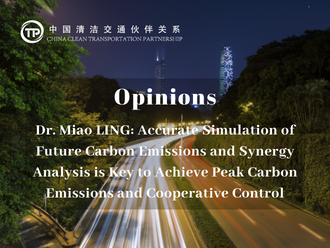
Dr. Miao LING, a researcher at the School of Intelligent Engineering at Sun Yat-sen University, emphasized that the simulation of future emissions and synergy analysis is a key step to achieve peak carbon emissions and cooperative control. He also conducted a cost-effectiveness analysis of reducing emissions in road traffic in the Pearl River Delta region, and pointed out that the long-term planning of a city should prioritize long-term policies such as improving emission standards and prioritizing public transportation policies.
More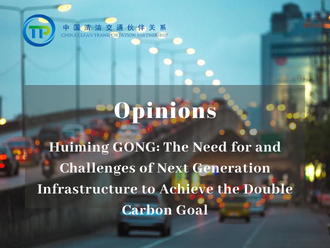
Huiming GONG, senior program director of the Transportation Program at the Energy Foundation, emphasized that the concept of "next-generation infrastructure" should not be confused with that of "new infrastructure," as there are fundamental differences between the two. Gong noted that the push towards electrifying medium and heavy-duty vehicles imposes greater demands on infrastructure.
More
According to Huiming GONG, Senior Project Director of Transportation at the Energy Foundation, under the backdrop of the dual-carbon goal, carbon emissions from freight transportation are expected to peak or reach a plateau before 2030. However, there is great uncertainty regarding carbon neutrality in freight transportation, which requires further in-depth and systematic research.
More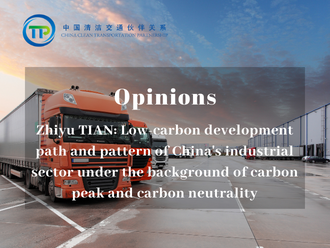
In the context of carbon peak and carbon neutrality, Zhiyu TIAN, Deputy Director and Researcher of the Energy Efficiency Center of the Energy Research Institute of the National Development and Reform Commission, pointed out that the demand for energy consumption in China's industrial sector will continue to increase before 2025 and tend to be stable around 2030. With the continuous adjustment of industrial structure and the continuous improvement of energy efficiency, the energy demand of the industrial end will decrease by about 20%-30% compared with the current level by 2060.
More
Jie HE, professor-level senior engineer at China National Building Material Science & Technology Co., Ltd. pointed out that under the dual-carbon goal, the national building materials industry is facing huge pressure to reduce emissions. In addition, China's construction industry aims to achieve carbon peak by 2025, and the cement industry is expected to be the first to achieve carbon peak by 2023.
More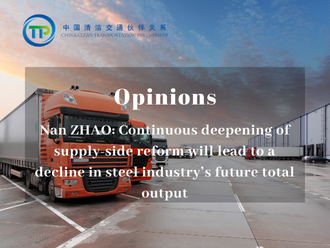
Nan ZHAO, senior engineer at the Metallurgical Industry Economic Development Center, pointed out that the continuous deepening of supply-side reform will lead to a downward trend in the total output of the steel industry in the future. At the same time, technological innovation will drive high-quality development, and carbon neutrality in the steel industry needs to be achieved in a coordinated manner.
More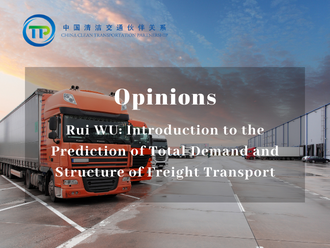
Rui WU, director of the Environmental Resources Department of the Planning and Research Institute of the Ministry of Transport, made the following predictions regarding the development of freight demand: under the dual-carbon goal, coal consumption is expected to accelerate its reduction, the growth of foreign trade will bring about an increase in the total volume of goods transportation, the optimization of industrial structure will have a limited impact on freight transportation, and it is expected that China's future bulk cargo volume will peak around 2030, driving the freight growth rate of bulk material transportation modes such as railways and waterways to peak.
More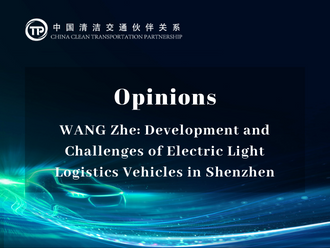
WANG Zhe, Director of the Transportation Project at the Rocky Mountain Institute, pointed out that under current conditions, with certain policy, technological, and market support, urban logistics vehicles can achieve comprehensive electrification. Shenzhen has set an example, with a current adoption rate of 30% to 50%.
MoreCCTP is a non-governmental, non-profit, and voluntary platform, focusing on policy and technological innovations, summarizing and disseminating national and global practices for a net-zero transportation sector.